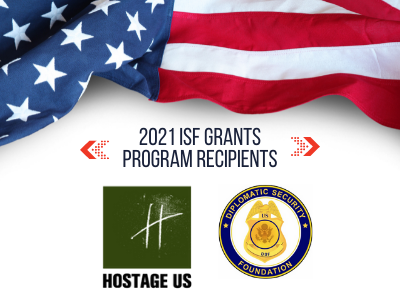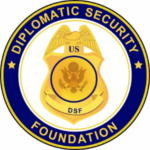News

2021 TSF Nonprofit Grants Program Supports Hostage US & Diplomatic Security Foundation
The Security Foundation (TSF) is proud to announce the 2021 grant recipients of TSF’s Nonprofit Grants program for U.S.-based nonprofits that serve the global security community.
For TSF’s second year of grant funding, the recipients are:
- $10,000 to Hostage US, a nonprofit supporting the families of the estimated 200 Americans taken hostage or wrongfully detained abroad each year. Last year, Hostage US received TSF’s first-ever, non-OSAC grant.
- $40,000 to the Diplomatic Security Foundation (DSF), which provides timely financial support and charitable contributions to members, and their immediate family, of the U.S. Department of State’s Bureau of Diplomatic Security and colleagues in the law enforcement and U.S. foreign affairs community.
“We are proud to support these organizations that mean so much to the global security community in such meaningful ways, especially as we close out what continues to be a challenging year for families,” Peggy O’Neill, TSF Executive Director, says. “We established TSF’s Nonprofit Grants program in early 2020 to expand our support beyond the ongoing, important funding for the Overseas Security Advisory Council (OSAC).”
The program focuses specifically on U.S. nonprofits serving the security community that have annual budgets under $1 million. Each year, TSF budgets 10% of its grant funding to non-OSAC nonprofits. The remaining 90% of TSF grant funds support OSAC programs.
Supporting the worldwide Diplomatic Security family impacted by COVID-19
Earlier in December, when TSF’s Board reviewed the grant applications, the global impact of the ongoing COVID-19 pandemic was clear – and heartbreaking. Many U.S. Embassy security staff families have been hit with deaths of their loved ones from COVID-19. In turn, those families have reached out to the DSF for needed, increased support.
“A gift of this size is a first for us and will be immensely helpful,” says Sarah Rothleder, DSF Executive Director, “It has been a challenging year for us, now almost two years since the pandemic started. This gift will give us a little breathing room and allow us to focus even more on helping those in our DS family.”
Coming off a successful sponsorship of its second TSF Virtual Reception, a robust year of funding OSAC virtual programming and prudent fiscal oversight, the ISF Board was able to award a significant gift to address the DSF’s increased need.
Created in 1994 by Diplomatic Security Special Agents, the DSF provides support to diplomatic security families in hardship or crisis, including the death or injury of a family member. The ISF 2022 grant will enable DSF to meet the increased needs of the broader U.S. Embassy community. These funds often are the only money the families of Embassy guards – typically the only breadwinner in the family – who have died or have been assaulted in the line of duty receive. DSF funding also helps families with children and other members battling cancer and other diseases and has funded $250,000 in college scholarships for the DSS community since 1994.
“This grant by the ISF is incredibly generous and will help us meet requests from around the world,” adds Greg Starr, DSF Board President. “I have always been proud of ISF since its inception, supporting Diplomatic Security through its support to OSAC, which in turn exists to support U.S. companies, educational institutions and others operating abroad. ISF now contributing to DSF to help those in need in the Diplomatic Security family makes me prouder still of ISF.”
Supporting the Hostage US Family and Hostage Support Program
Hostage US is equally pleased with the impact of TSF’s Grant, which will help them serve families of those held hostage or wrongfully detained, now and when their loved ones return home. Says Liz Frank, Executive Director, “I am thrilled and incredibly grateful to receive such a generous grant.”
Grant funds will be used to support Hostage US’ Family and Hostage Support Program which provides services to over 50 families annually going through the unimaginable experience of having a loved one held hostage overseas, and American hostages and wrongful detainees as they return home and navigate the challenges of reintegration after captivity.


